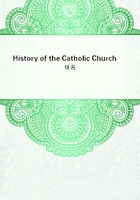
第153章
(1700-21). His election was acclaimed in Rome, in Italy, and throughout the Catholic world. He was a man of great sanctity of life, devoted to prayer and labour, who set an example to others by preaching and hearing confessions regularly in St. Peter's. While he was Pope there was no danger of nepotism at the papal court, and no prospect for unworthy or greedy officials in the Papal States. During his entire reign he was involved in disputes with the Catholic powers.
The death of Charles II. of Spain led to a conflict between Louis XIV., who claimed the crown for his grandson Philip of Anjou (Philip V.), and the Emperor Leopold I., who supported the cause of his son, the Archduke, Charles III. Clement XI. endeavoured at first to maintain an attitude of neutrality, but as Philip had been crowned and had established himself apparently on the throne of Spain the Pope was obliged to acknowledge him. This action gave great offence to Leopold I. and to his successor, Joseph I., who retaliated by interfering in ecclesiastical affairs and by despatching an army against the Papal States. Clement XI., abandoned by Louis XIV. and by Philip V. was obliged to come to terms with the Emperor, and to acknowledge Charles III. as king of Spain. Immediately Louis XIV. and Philip V. were up in arms against the Pope. The nuncio was dismissed from Madrid and relations between Spain and Rome were interrupted for a long period;the papal representatives were excluded from the negotiations preceding the Peace of Utrecht (1713); and feudal territories of the Holy See were disposed of without consulting the wishes of the Pope, Sicily being handed over to Victor Amadeus of Savoy (1675-1713) with whom Clement XI. was then in serious conflict.
To put an end to difficulties with the foreign bishops, who exercised jurisdiction in portion of his territory, the Duke of Savoy had demanded full rights of nomination to episcopal Sees. When this demand was refused he recalled his ambassador from Rome (1701), and took upon himself the regulation of ecclesiastical affairs. He appointed an administrator to take charge of the revenues of vacant Sees, enforced the /Royal Placet/ on episcopal and papal documents, and forbade the publication of Roman censures (1710). A partial agreement was arrived at when the royal administrator consented to accept his appointment from the Pope, but the transference of Sicily to the Duke of Savoy led to a new and more serious quarrel. The latter attempted to revive the privileges known as the Sicilian Monarchy, accorded formerly to the ruler of Sicily. The Pope refused to recognise these claims, and as the king remained stubborn nothing was left but to place the island under interdict. To this the king replied by expelling those priests who observed the interdict. This state of affairs lasted until Sicily passed into the hands of the King of Spain (1718).
The Turks were active once more and threatened Europe by land and sea.
Clement XI. sent generous supplies to Venice to equip its fleet, encouraged Stanislaus Augustus of Poland who had joined the Catholic Church, granted tithes upon ecclesiastical property to help him in the struggle, and allowed Philip V. of Spain portion of the revenues derived from the benefices in Spain and in the Spanish-American colonies, on condition that the Spanish fleet should be sent into the Mediterranean to take part in the war against Turkey. The victories of Prince Eugene (1716-18) dealt a severe blow to the power of the Sultan, but the Spanish fleet instead of assisting the Christian forces was used for the capture of Sardinia from the Emperor. As evidence of the difficult position of Clement XI. in face of the powers of Europe it is sufficient to point to the fact that at one time or another during his reign, his nuncios were driven from Vienna, Turin, Madrid, and Naples.
The conclave that followed was, as might be expected, a stormy one;but in the end Cardinal Conti, who had been nuncio in Lucerne and Lisbon, was elected and took as his title Innocent XIII. (1721-24). He granted the kingdom of Naples to the Emperor, who in turn without consulting the Pope bestowed the papal fiefs of Parma and Piacenza on Prince Charles of France. Peace was restored between the Holy See and Spain (1723), and Innocent XIII., yielding very unwillingly to the importunate demands of France, conferred a cardinal's hat on Dubois, the prime minister.
His successor was Benedict XIII. (1724-30). Cardinal Orsini, as he was known before his election, belonged to the Dominican Order, and at the time of the conclave held the Archbishopric of Benevento. As archbishop he was most zealous in the administration of his diocese, and as Pope he followed the same strict simple life to which he had been accustomed when a Dominican friar. He made peace with the Emperor by granting him practically all the rights contained in the Sicilian Monarchy, reserving to the Holy See only the final decision of important cases (1728), and with the King of Savoy by acknowledging his title over Sardinia and by granting him the right of episcopal nomination in the island. With the demand of King John of Portugal, namely, that Portugal should enjoy the privilege of presenting candidates for appointment to the college of cardinals, Benedict XIII.